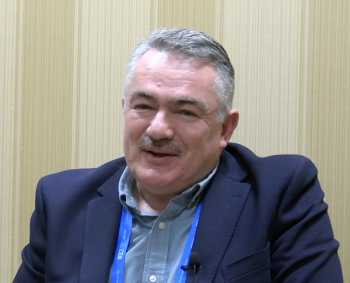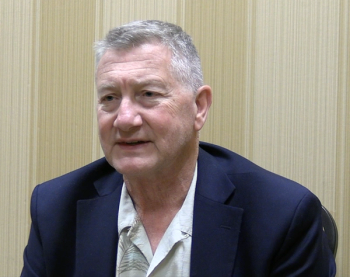
Optimizing Parameters for High-throughput Imaging Mass Spectroscopy
In this interview, Yingchan Guo of the University of Florida discusses high-throughput IMS and identifying fatty acyl chains of lipids using mass spectrometry, particularly in matrix-assisted laser desorption ionization (MALDI) imaging.
Yingchan Guo, a researcher in the Prentice Research Group at the University of Florida since 2021, earned her BS in Chemistry from the Beijing University of Chemical Technology in 2020. Working under Boone M. Prentice, she focuses on advancing bioanalytical mass spectrometry to explore the molecular foundations of health and disease. Her research involves techniques such as imaging mass spectrometry (MS), tandem MS (MS/MS), liquid chromatography (LC)-MS, and gas-phase ion/ion reactions to enhance the sensitivity, specificity, and spatial resolution of MS analyses of biological tissues, lipids, and glycans (1,2).
At the SciX Conference in Covington, Kentucky, Guo delivered two talks that highlighted her research. Guo’s research investigated the mechanisms of gas-phase ion/ion reactions between phosphatidylcholine (PC) cations and 1,4-phenylenedipropionic acid (PDPA) dianions, focusing on how different PC ion types—[PC+H]+, [PC+Na]+, and [PC+K]+—affect charge inversion efficiency (3).
In the below clip, Guo discusses high-throughput IMS and identifying fatty acyl chains of lipids using mass spectrometry, particularly in matrix-assisted laser desorption ionization (MALDI) imaging. She also addresses how her research aims to provide more predictable results for imaging research on biological tissues, offering improved spatial and chemical specificity.
This interview clip is the final of our series with Guo. To stay up to date with the latest coverage of the 2025 SciX Conference, click
To learn more about the work Yingchan Guo and her colleagues are working on, you can read one of the below published papers.
- Characterizing the Energy Surfaces of Competing Pathways in Gas-Phase Charge Inversion Ion/Ion Reactions Involving Cationized Lipids and Anionic Diacids. J. Am. Soc. Mass Spectrom. 2025, 36 (10), 2103-2116. DOI:
10.1021/jasms.5c00123 - Extended Similarity Methods for Efficient Data Mining in Imaging Mass Spectrometry. Digit. Discov. 2024, 3 (4), 805-817. DOI:
10.1039/d3dd00165b - Enhancing Spatial Resolution in Tandem Mass Spectrometry Ion/Ion Reaction Imaging Experiments through Image Fusion. J. Am. Soc. Mass Spectrom. 2024, 35 (8), 1797-1805. DOI:
10.1021/jasms.4c00144 - A Mass Spectrometry-Based Assay for Mouse IgG N-Glycan Screening in Biofluids. Anal. Bioanal. Chem. 2025, 417 (20), 4525-4535. DOI:
10.1007/s00216-025-05994-x
References
- Prentice Research Group, Yingchan Guo. University of Florida. Available at:
https://prentice.chem.ufl.edu/guo/ (accessed 2025-10-06). - Wetzel, W.; Chasse, J. Yingchan Guo Previews Her Talk on Improving Structural Identification of Phosphatidylcholines. Spectroscopy. Available at:
https://www.spectroscopyonline.com/view/yingchan-guo-previews-her-talk-on-improving-structural-identification-of-phosphatidylcholines (accessed 2025-10-10). - Wetzel, W. Yingchan Guo Previews Her Thursday Talk on Gas-Phase Charge Inversion Ion Reactions. Spectroscopy. Available at:
https://www.spectroscopyonline.com/view/yingchan-guo-previews-her-thursday-talk-on-gas-phase-charge-inversion-ion-reactions (accessed 2025-10-10).
Newsletter
Get essential updates on the latest spectroscopy technologies, regulatory standards, and best practices—subscribe today to Spectroscopy.



